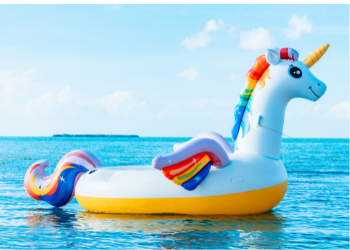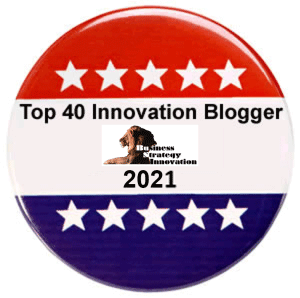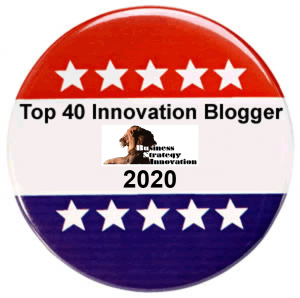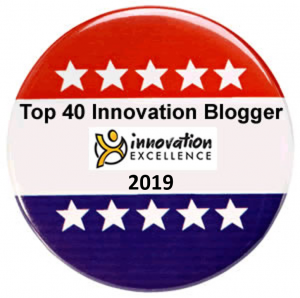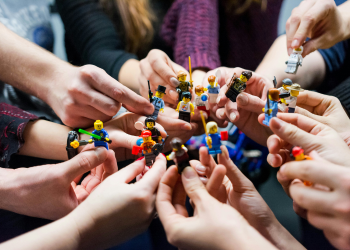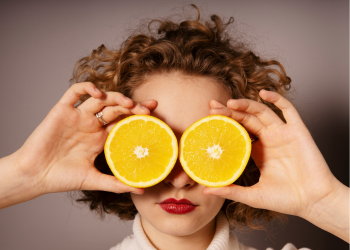Growing up in the fashion industry, in 1980’s Paris, I forged an exciting global career and experienced, first hand, a diverse range of the most amazingly innovative fashion presentations ever. It was the dawn of an explosive era where fashion really mattered and wonderful events became really fantastic happenings featuring a lot of playful and experimental theatrical performances and fabulous guest stars on the catwalk. “From Claude Montana to Thierry Mugler, from Giorgio Armani to Franco Moschino, from Jean Charles de Castelbajac to Christian Lacroix, there were many designers who shaped the aesthetics of the era with their creations and shows” – whose creativity, still impact us across the arts and other key industries today.
Being playful and experimental
Reinforcing that in the arts and other industries, and in our professional and personal lives, newness, creativity, and innovation only happen through people being willing to be both playful and experimental.
This is useful to know, especially with the range of constraints and restrictions occurring globally as a result of fierce governmental reactive response to managing the Covid-19 pandemic. Coupling these with the challenges and limitations of a remote and hybrid workplace, are combining to cause many of us to achingly long for more freedom, fun, play, and adventure. Yet, many of us, are feeling bound to our laptops, TV’s and kitchens, and are locked within the boundaries of our homes and local neighbourhoods.
It is possible to shift the range of negative feelings that lockdowns produce by exploring possibilities and opportunities for expanding our knowledge and learning, by knowing how to be more playful and experimental, and especially by taking up a set of regular reflective practices.
A unique moment in time
Using this unique moment in time to take up a set of reflective practices to ignite our creative juices and expand our appetite and capacity for creativity.
At the same time, use this moment to explore opportunities to learn and expand our knowledge, because, knowledge plays an important role in the productivity and prosperity of economies, organisations, and individuals and the post Covid-19 world is going to need a lot of new knowledge in the coming decade of both disruption and transformation.
Expanding our knowledge
Most of us are aware that, our desire to create, and actually being playful and experiential usually involves learning from some kind of direct experience. Like painting, where our hands are likely to get dirty, where we may produce a number of poor efforts (which we often hide) before we eventually create one, we can accept and live with.
Learning from a direct experience is more effective if coupled with reflection – that is, the intentional attempt to synthesize, abstract, and articulate the key lessons taught by experience.
Where research reveals that the effect of reflection on learning is mediated by a greater perceived ability to achieve a goal in that it improves your confidence, self-belief, and conviction that you can achieve it.
Learning from reflecting on experience
Making the learning experience a playful and experimental one allows us to have fun, in ways that engage our multiple intelligences – our cognitive brains, and heart and gut brains in ways that create meta-shifts that challenge our mental maps.
This also helps us develop our learning agility – “learning what to do when you don’t know what to do” especially important in a world of constant and disruptive change.
Which will especially be a very vital and critical skill set to cultivate in the post Covid-19 world, where there is no playbook, or reliable template for long-term planning the results we might want, in a disruptive and uncertain future.
Starting with elastic thinking
It starts with developing our elastic thinking skills, where according to Leonard Mlodinow – it is now prime time for people to harness the power of “elastic thinking” to navigate an unstable world and underpins our ability to adapt and be creative.
And involves “developing the capacity to let go of comfortable ideas and become accustomed to ambiguity and contradiction; the capability to rise above conventional mindsets and to reframe the questions we ask; the ability to abandon our ingrained assumptions and open ourselves to new paradigms; the propensity to rely on imagination as much as on logic and to generate and integrate a wide variety of ideas; and the willingness to experiment and be tolerant of failure.”
At ImagineNation™ we developed a four-step cognitive process to help people stretch their mental maps, feelings, thinking, behaviours, and actions, enabling them to be playful and experimental by focussing on these key elements that enable reflective practice:
- Discovering
- Sensemaking
- Internalising
- Applying
Exploring the role of failing fast
Getting to the creative and innovative outcomes, when playing and experimenting with thinking or acting differently, usually involves some kind of failure, where we fail flat on our faces!
Yet when being brave playful and courageous, and experimenting, you have to be willing to make mistakes and fail. The key is to try out things, and experiment, like children, do, and not worry about what others think and say about you, when you make a mistake or fail.
At the same time, adopting a reflective practice supports our willingness to let go and come from a beginners mind, to unlearn what may have worked previously, whilst being vulnerable and open-hearted, minded and willed to deeply reflect on what happened and what knowledge you may gain and what you might learn from it.
Continuously learning from reflective practice
This means that “work must become more learningful” where an organisations’ or teams’ collective aspiration is set free and people have permission, safety, and trust to be playful and experimental.
To “learn by doing and reflecting” through being:
- Encouraged to continually expand their capacity to create the results they truly desire,
- Re-educated to elasticize their thinking and develop new mental maps and where expansive patterns of feeling and thinking are nurtured,
- Committed to continuously learning how to learn together, at a speed faster than the competition.
Resulting in the intelligence of the organisation or team exceeding the intelligence of individuals in the team and in the organisation, and by harnessing the collective’s capacity to create, invent and innovate through enacting a set of habitual reflective practices.
CCS Cards for play and critical reflection:
As a side note, it’s worth mentioning a tool we like to use that can provide both a sense of play and an opportunity for critical reflection. As many of you may know, CCS Cards are image cards containing a special set of photos, illustrations, and words. Just holding them, sorting them, and talking about what particular cards might mean for you, is an enjoyable, playful activity that often leads to fresh, creative responses.
Furthermore, as a tool for reflective practice, CCS Cards give people a powerful way to recall and recreate their lived experiences by incorporating their feelings and emotions. The cards provide participants with self-selected representations that they can link to all the associated concepts, feelings, words, and actions that were part of the lived experience. Armed with this clearer picture, they are better able to reflect upon and learn from their experience. The cards also provide an easy way to share and compare their reflections with others, which is vital for effective collaboration.
Bringing together theory and practice
Enacting a set of reflective practices helps us effectively bring together and integrate theory and practice, where through reflection, people are able to:
- Discover new mental maps, feelings, thoughts, and ideas,
- Make sense of these in their own context or situation,
- Internalize and assimilate the impact of these mental maps, thoughts, feelings, and actions by introducing options and choices for being, thinking, and acting differently,
- Apply that information to add to their existing knowledge base and reach a higher level of understanding,
- Adapt how they feel, think and act as resources in new, unknown, unexpected, and disruptive situations, as well as in how they plan, implement, and review their actions.
Surely, these might comprise a helpful set of strategies to embrace to help you thrive in these challenging times?
Isn’t there an inherent opportunity for all of us to discover and explore new ways of having more fun, by being playful and experimental?
Perhaps we might discover new ways of adapting and thriving individually and collectively co-create more individual freedom, wonderful fun, and exciting adventures that we are all craving, and become future-fit, in our constantly changing, uncertain, and unstable world?
Find out more about our work at ImagineNation™
Join our next free “Making Innovation a Habit” innovation webinar “Managing both the future and the present” to support you to harness your organisation’s or team’s collective intelligence and respond to the new environments, new customers, and heightened societal expectations emerging in 2021. It’s on Wednesday, 22nd September 2021. Find out more.
Find out about our learning products and tools, including The Coach for Innovators Certified Program, a collaborative, intimate, and deep personalized innovation coaching and learning program, supported by a global group of peers over 8-weeks, starting Tuesday, October 19, 2021.
It is a blended and transformational change and learning program that will give you a deep understanding of the language, principles, and applications of a human-centred approach and emergent structure (Theory U) to innovation, within your unique context. Find out more
